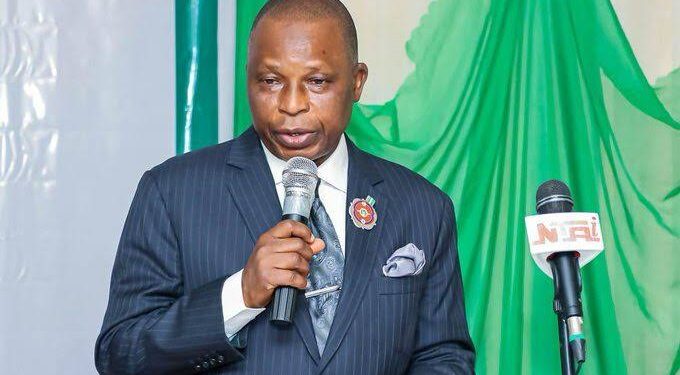A cloud of suspicion and controversy is gathering over Nigeria’s legal and political landscape following explosive reports that the country’s Attorney General of the Federation (AGF), Lateef Fagbemi (SAN), has allegedly mishandled a high-profile N20 billion fraud case. The case, which involves a former Managing Director of the Asset Management Corporation of Nigeria (AMCON), Ahmed Kuru, was widely regarded as a key litmus test of the Tinubu administration’s commitment to fighting corruption. Now, its abrupt and controversial withdrawal has sparked a national debate and raised serious concerns about the integrity of Nigeria’s anti-graft institutions.
The case, which had been a priority for the Economic and Financial Crimes Commission (EFCC), centered on allegations that Kuru and his co-conspirators had fraudulently diverted a staggering N20 billion in public funds. The funds, according to the EFCC’s investigation, were allegedly funneled through Heritage Bank to a company, Sigma Golf Nigeria Limited, which used the money to acquire Keystone Bank. The case appeared to be “watertight,” with the EFCC having already secured a conviction against Sigma Golf Nigeria Limited and recovered N6 billion of the stolen funds.
ALSO READ: https://nationscuriosity.com/did-a-billion-dollar-threat-just-drop-in-the/
The conviction of the co-defendant and the recovery of a portion of the stolen funds were seen as major breakthroughs in a long-running and complex investigation. It sent a clear message that the long arm of the law was finally catching up with those who had allegedly looted public funds. For many Nigerians, this was a moment of hope, a sign that the new government was serious about tackling the endemic corruption that has plagued the nation.
However, that hope has now been replaced by a deep sense of betrayal and skepticism. According to a recent report by Sahara Reporters, the AGF, Fagbemi, without consulting the EFCC, filed a notice of discontinuance on July 24, 2025, effectively withdrawing the charges against Ahmed Kuru. This move, which was reportedly met with dismay and opposition from within the anti-graft agency, has been widely condemned as a deliberate attempt to derail a legitimate and well-prosecuted case.
The decision to withdraw the charges came just as the case was scheduled for trial, and the prosecution counsel, V.J. Alma, moved to formally discharge the defendant. The court, acting on the AGF’s request, struck out the case, a decision that has left many legal experts and citizens stunned. The AGF’s purported reason for the withdrawal—that the decision was “rooted in the principles of justice, fairness, and the rule of law”—has been met with widespread disbelief, given the strength of the evidence already presented.
This is not the first time AGF Fagbemi has faced scrutiny for his handling of corruption cases. Sahara Reporters has previously reported on instances where the AGF allegedly overruled the EFCC, preventing the agency from arraigning high-profile individuals on charges of fraud. These actions, combined with the recent withdrawal of the Kuru case, paint a troubling picture of a possible pattern of interference in the anti-corruption efforts of the state.
The ramifications of this decision are immense. It not only undermines the hard work and resources invested by the EFCC but also erodes public trust in the country’s legal system. The message it sends is one of impunity, suggesting that powerful individuals can be protected from prosecution, even in the face of compelling evidence. This is a dangerous precedent that could embolden corrupt officials and further discourage whistleblowers and anti-graft activists.
Many Nigerians are now questioning the sincerity of the government’s anti-corruption rhetoric. They are asking whether the fight against corruption is being selectively applied, and whether some individuals are deemed too powerful to face justice. The withdrawal of the N20 billion fraud case is a significant blow to the morale of those who believe in a more transparent and accountable Nigeria. It highlights the urgent need for a more robust and independent legal framework that can withstand political pressure and ensure that justice is served for all, regardless of their social or political standing. The court’s decision to strike out the case may have closed this specific chapter, but for millions of Nigerians, the questions surrounding it are only just beginning. The suspense is not in what happened, but in what it reveals about the future of justice in Nigeria.


